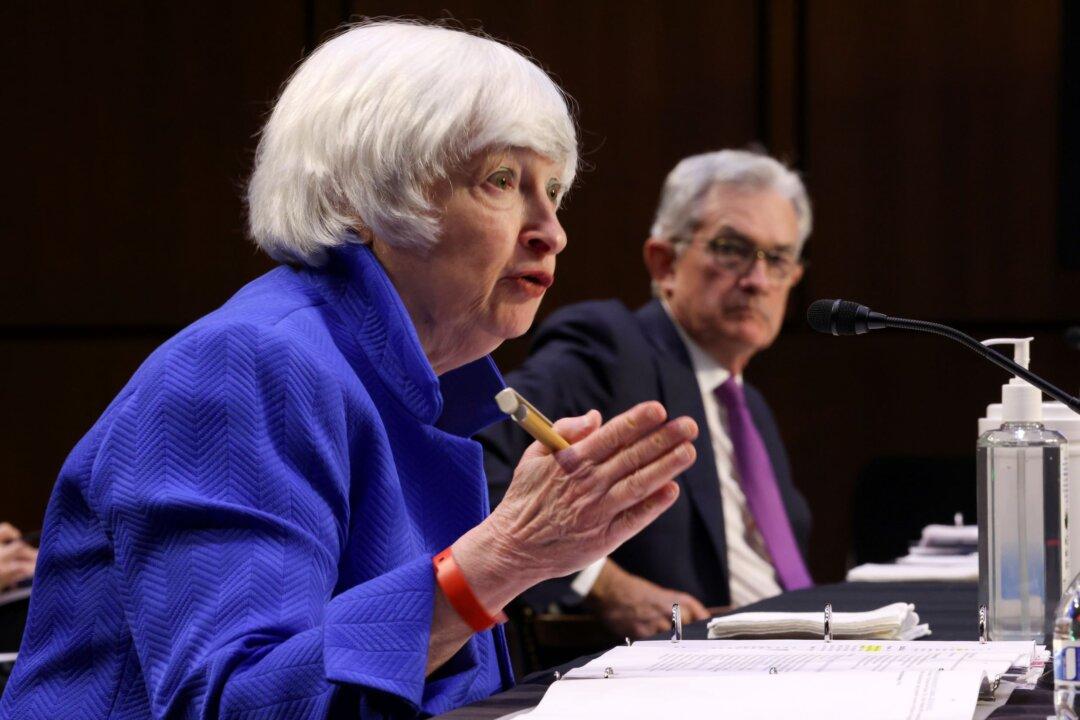Reducing the tariffs on imported goods from China, imposed in 2018 by President Trump, through a revived exclusion process could help lower inflationary pressures on the economy, said U.S. Treasury Secretary Janet Yellen on Thursday at the Reuters Next conference.
“This is a process by which tariffs can be lowered. And I think that that could be helpful,” Yellen said regarding the tariff exclusion process. “Again, it’s not a game changer. But these are things we’re doing to try to mitigate these pressures.” The process is an opportunity by the public to comment for or against reinstating 549 exclusions (pdf) that were previously granted, and most of which expired in December 2020. The comment section closed on Dec. 1.





